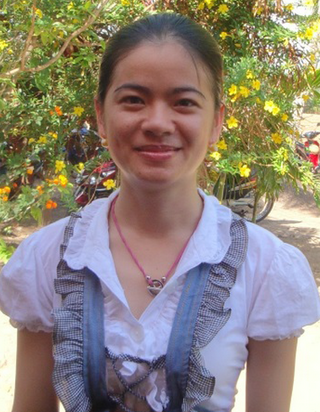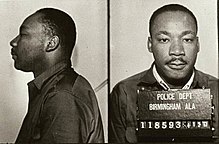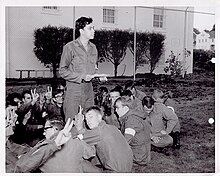
A political prisoner is someone imprisoned for their political activity. The political offense is not always the official reason for the prisoner's detention.

A conscientious objector is an "individual who has claimed the right to refuse to perform military service" on the grounds of freedom of conscience or religion. The term has also been extended to objecting to working for the military–industrial complex due to a crisis of conscience. In some countries, conscientious objectors are assigned to an alternative civilian service as a substitute for conscription or military service.

Turkmenistan's human rights record has been heavily criticized by various countries and scholars worldwide. Standards in education and health declined markedly during the rule of President Saparmurat Niyazov.
Camilo Ernesto Mejía is a Nicaraguan who left the United States Army during the Iraq War on conscientious objector grounds, was convicted of desertion and went on to become an anti-war activist. He is also the son of Carlos Mejia Godoy, Nicaragua songwriter.
Cheam Channy was a Cambodian politician and member of parliament for the opposition Sam Rainsy Party (SRP). He was elected as a representative for Battambang Province in the 1998 National Elections, then again for Kompong Cham province in 2003.
Armando Valladares Perez is a Cuban-American poet, diplomat and former political prisoner for his involvement in the Cuban dissident movement.
G-15 is a name given to a group in Eritrea that opposes the policy of President Isaias Afewerki postponing elections and the failure in implementing the constitution. The membership of this group consists of former members of the President's ruling People's Front for Democracy and Justice (PFDJ) which has ruled the country since its independence in 1993. In May 2001 the group issued an open letter raising criticism against Isayas Afeworki's actions calling them "illegal and unconstitutional."

The situation for human rights in Syria is considered one of the worst in the world and has been globally condemned by international organizations like the United Nations, Human rights Watch, Amnesty International, and the European Union. Civil liberties, political rights, freedom of speech and assembly are virtually non-existent under the Ba'athist government of Bashar al-Assad; which is regarded as "one of the world's most repressive regimes". The 50th edition of Freedom in the World, the annual report published by Freedom House since 1973, designates Syria as "Worst of the Worst" among the "Not Free" countries. The report lists Syria as one of the two countries to get the lowest possible score (1/100).
Human rights in Greece are observed by various organizations. The country is a signatory to the European Convention on Human Rights, the Geneva Convention relating to the Status of Refugees and the United Nations Convention Against Torture. The Greek constitution also guarantees fundamental human rights to all Greek citizens.
Mehmet Tarhan is a Kurdish conscientious objector who was imprisoned for refusing military service. Tarhan had been sentenced to four years in a military prison for disobedience after refusing to wear a military uniform, a sentence that is evidently the longest ever given for such an offense in Turkey. He was released in March 2006 after spending several months in prison. As of 2014, he is a member of the party assembly of the Peoples' Democratic Party and a member of the executive committee of its consultative body Peoples' Democratic Congress.
Administrative detention is arrest and detention of individuals by the state without trial. A number of jurisdictions claim that it is done for security reasons. Many countries claim to use administrative detention as a means to combat terrorism or rebellion, to control illegal immigration, or to otherwise protect the ruling regime.
Halil Savda is a Turkish conscientious objector who has been subjected to continued arrest and conviction for his refusal to serve mandatory military service – in violation of Turkish law.
Agustín Aguayo is a veteran of the Iraq War. After several failed attempts to attain conscientious objector status, he deserted his unit in Germany in September 2006 to avoid redeployment to Iraq. He was convicted of desertion by a court martial March 6, 2007 and served six months in prison. His trial led Amnesty International to declare him a prisoner of conscience.
Kamal al-Labwani is a Syrian doctor and artist, He was released from Adra Prison, near Damascus on November 15, 2011, according to state media. Before his release, Amnesty International called him a prisoner of conscience.
İnan Süver is a Turkish conscientious objector who served a prison term for desertion from the Turkish Armed Forces.
Jesús Joel Díaz Hernández is a Cuban journalist who was imprisoned by the Cuban government from 1999–2001. His imprisonment attracted protest from several human rights organizations, including Amnesty International, which named him a prisoner of conscience.

The Insubordinate movement was a mass antimilitarist movement of civil disobedience to compulsory military service in Spain, the movement lasting from the early 1970s until the abolition of conscription on 31 December 2001.

Nguyễn Đặng Minh Mẫn is a human rights activist. Seeing the social inequities in Vietnam, she became a freelance photojournalist and posted photographs online as an alternative news source to state-controlled media.
Political prisoners in Poland and Polish territories have existed throughout much of the 19th and 20th centuries. In the 19th century, some Polish political prisoners started using their situation of imprisonment to act politically. This phenomenon became visible as early as in the aftermath of the Greater Poland Uprising of 1848.














